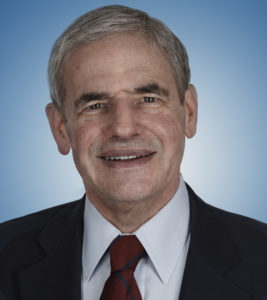The AP reported today, “President Felipe Calderon [of Mexico] said he would consider a debate on legalizing drugs Tuesday as his government announced that more than 28,000 people have been killed in drug violence since he launched a crackdown against cartels in 2006.”
As noted by Juan Carlos Hidalgo of the Cato Institute, in a post that links the AP story, “there is a growing consensus within Latin America about the failure of the war on drugs and the need to implement a sensible approach to drug policy.” (“President of Mexico Calls for Debate on Legalization of Drugs,” Cato@Liberty, Aug. 4, 2010.)
The consideration of change reflects progress in the recognition of the reality that the drug war creates crime. Portugal set an example of reform through decriminalizing the use and personal possession of drugs (treating these as administrative infractions, while still treating distribution of drugs as criminal.) Latin America could set an even better example through legalizing drugs.
Portugal’s Experience
The experience in Portugal has been that, after decriminalization, drug usage either stayed the same or declined, and drug-related pathologies decreased. See the Cato White Paper by Glenn Greenwald, “Drug Decriminalization In Portugal–Lessons for Creating Fair and Successful Drug Policies,” April 2009:
[D]ecriminalization has had no adverse effect on drug usage rates in Portugal, which, in numerous categories, are now among the lowest in the EU, particularly when compared with states with stringent criminalization regimes. Although postdecriminalization usage rates have remained roughly the same or even decreased slightly when compared with other EU states, drug-related pathologies — such as sexually transmitted diseases and deaths due to drug usage — have decreased dramatically. Drug policy experts attribute those positive trends to the enhanced ability of the Portuguese government to offer treatment programs to its citizens — enhancements made possible, for numerous reasons, by decriminalization.
The Drug War Hurts Kids and Helps Politicians and Drug Dealers
For a discussion of the drug war’s harm to children, and the benefits of ending prohibition, see Reason TV’s “Five Ways the Drug Wars Hurts Kids: A Conversation with Neill Franklin of Law Enforcement Against Prohibition [LEAP],” Aug. 3, 2010. Mr. Franklin notes, “These drugs in an illegal environment are more accessible to our kids because we leave complete control, regulation, and standards up to the criminals.”
For information on who benefits from the drug war, see Reason TV’s “Judge Jim Gray on the Six Groups That Benefit From Drug Prohibition,” March 10, 2010. Judge Gray, a spokesman for LEAP, identifies these groups as drug dealers, juvenile gangs, law enforcement, politicians, those that build and staff prisons, and terrorists. He also makes the libertarian point that it is illegitimate for government to prohibit drugs in the first place, regardless of the negative consequences of the policy. Addressing the fears that legalization will cause drug use to increase, he observes that making drugs legal makes them boring, which itself can deter use.
Latin America’s Opportunity
Watch for the U.S. government to object to Latin America making reforms. As noted above, law enforcement, politicians and the prison industry benefit from the drug war. Public choice theory tells us that the U.S. government will seek to continue to favor these special interests, to the detriment of the public good. Latin America’s governments are of course also subject to the public choice phenomenon, but concern with the violence caused by prohibition may overcome resistance to change.
Again, this is an opportunity for Latin America to set an example for the world. Poner fin a la guerra contra las drogas!




